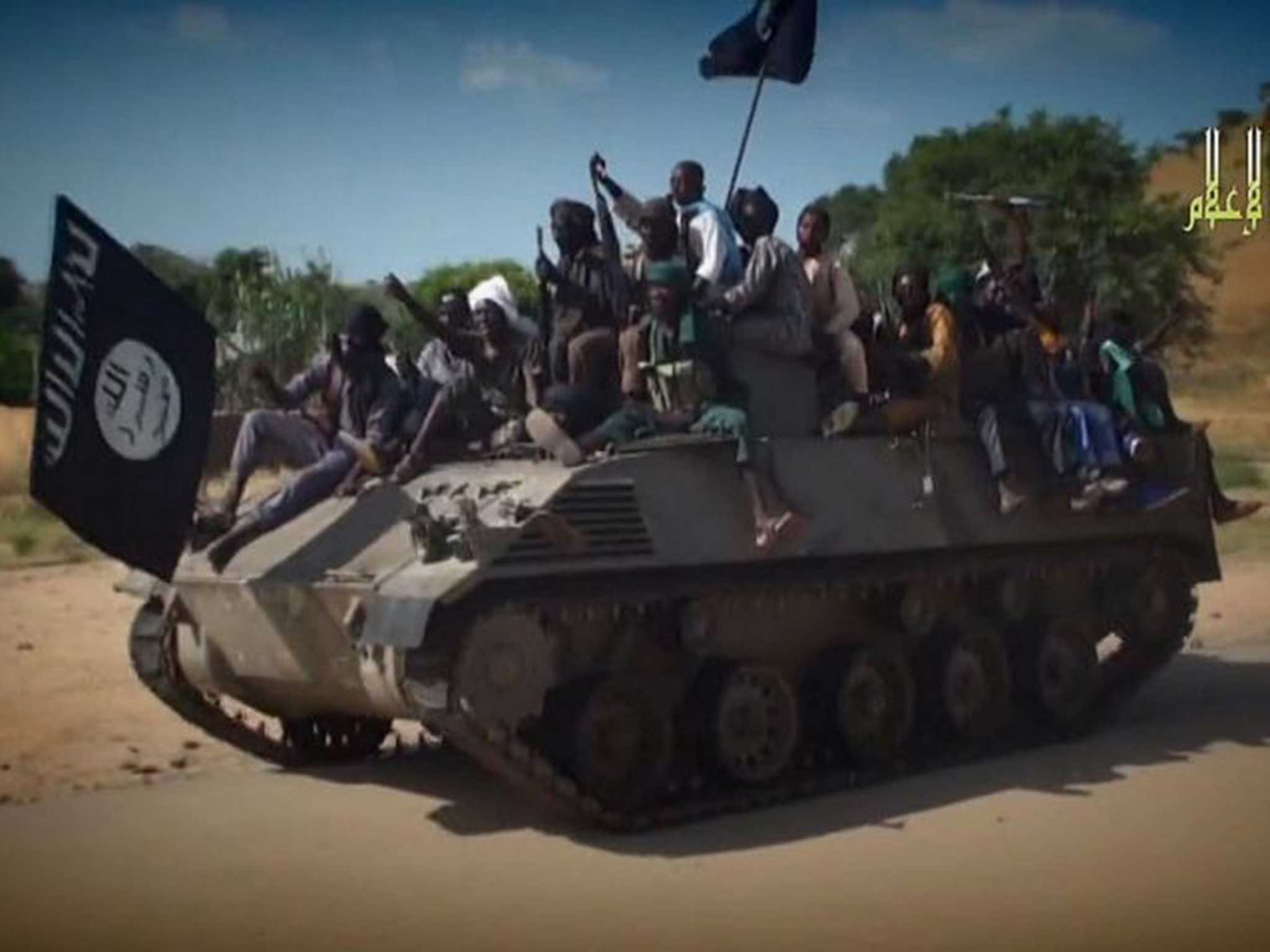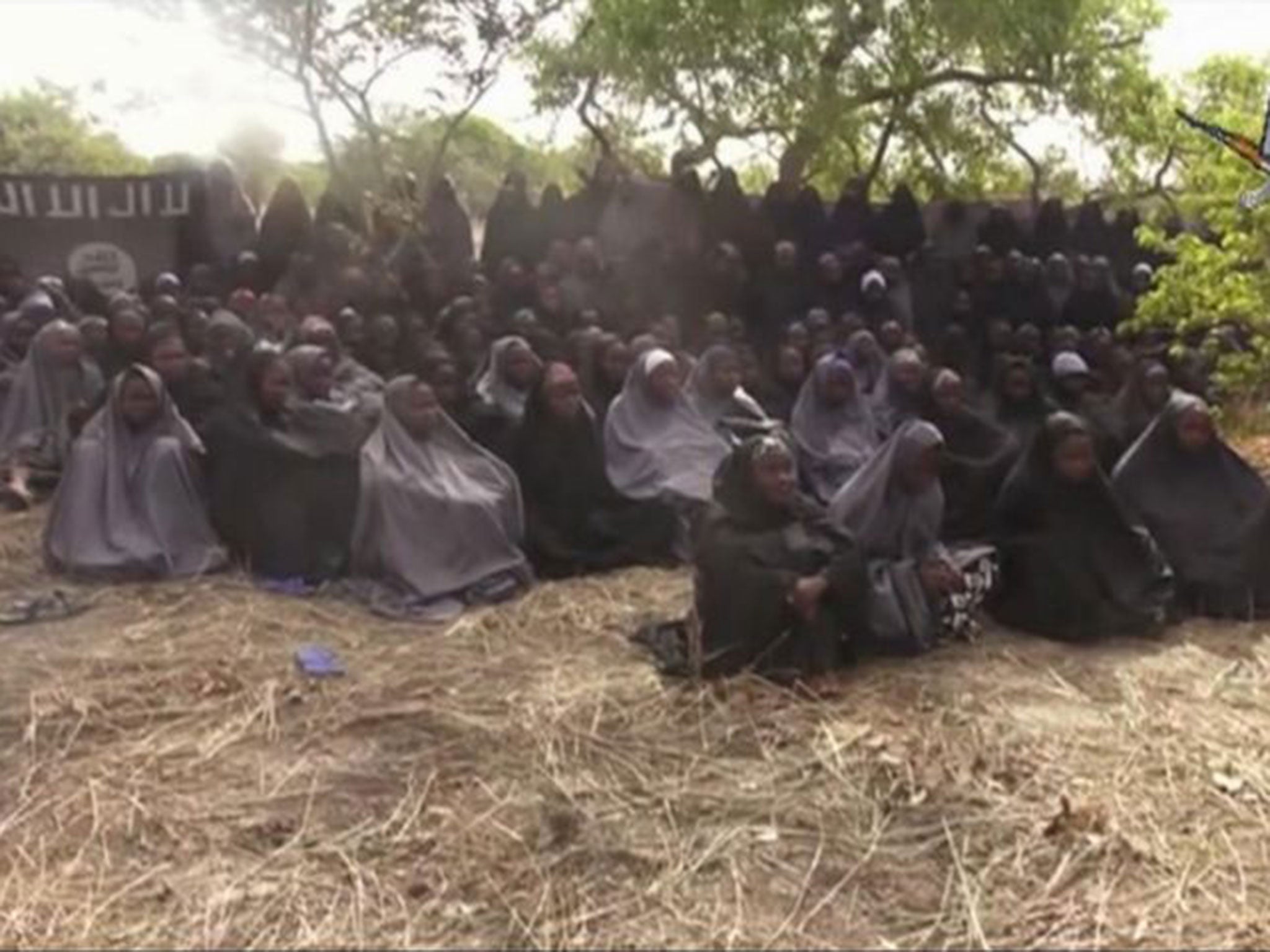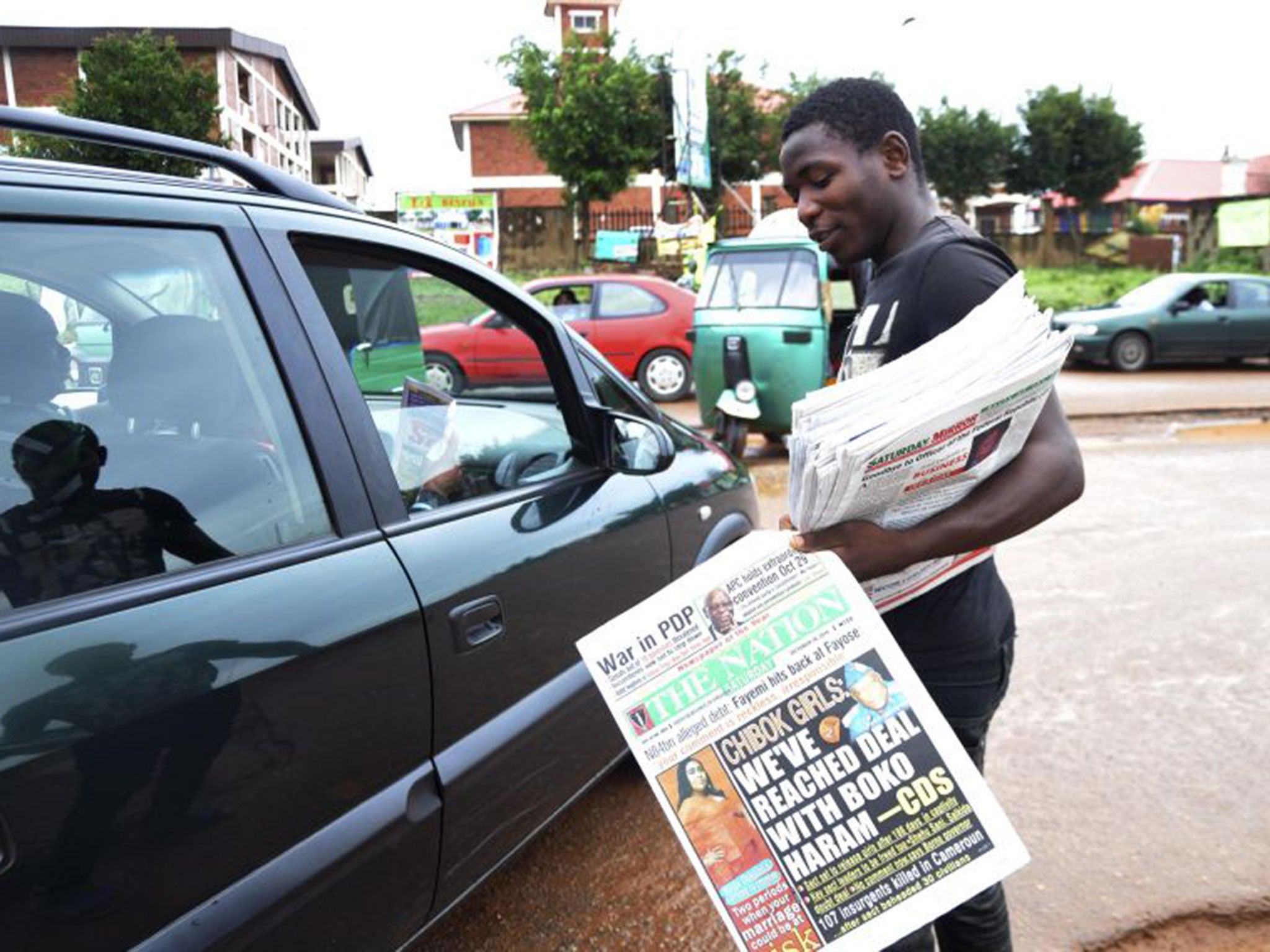Boko Haram seizes Nigerian town of kidnapped schoolgirls after government troops 'run away'
Islamic militants captured the town in a bloody skirmish on Thursday

Your support helps us to tell the story
From reproductive rights to climate change to Big Tech, The Independent is on the ground when the story is developing. Whether it's investigating the financials of Elon Musk's pro-Trump PAC or producing our latest documentary, 'The A Word', which shines a light on the American women fighting for reproductive rights, we know how important it is to parse out the facts from the messaging.
At such a critical moment in US history, we need reporters on the ground. Your donation allows us to keep sending journalists to speak to both sides of the story.
The Independent is trusted by Americans across the entire political spectrum. And unlike many other quality news outlets, we choose not to lock Americans out of our reporting and analysis with paywalls. We believe quality journalism should be available to everyone, paid for by those who can afford it.
Your support makes all the difference.Boko Haram militants have seized the town in north-eastern Nigeria that nearly 300 schoolgirls were kidnapped from in April.
The Islamic extremists entered Chibok, in Borno state, on Thursday evening, forcing thousands of people to flee as they shot from pickup trucks and motorcycles.
"Nobody can tell you what is happening there today because everybody is just trying to escape with their lives," Bana Law chairman of the Chibok local government.
Mixed reports indicate the insurgents appear to have attacked the predominantly Christian enclave after fighting in neighbouring Adamawa state.

“We learnt that the soldiers who were posted in Chibok also ran away as is usual these days,” Senator Ali Ndume of Borno State said.
“They left the villagers behind,” Mr Ndume claimed to the BBC.
Surviving residents described to the Guardian fleeing down streets filled with bodies as Boko Haram swarmed into the town.
Chibok came to international attention after the kidnapping of 276 schoolgirls on 14 April.
A campaign to #BringBackOurGirls went viral on social media with little tangible effect. The majority of the girls taken still remain in captivity after a series of bungled or ineffectual attempts by the Nigerian government.
Boko Haram leader Abubakar Shekau, who declared a caliphate in the areas that he controls, said in video released last month said the girls were "an old story," that they all had converted to Islam and been married off to his fighters.
Many of the parents of the 219 girls who remain under Boko Haram’s control had stayed in the town in the hope their daughters might return.
Tsambido Hosea Abana, a community leader from Chibok whose nieces and cousins are among the captured girls, said to the Guardian: “Our girls are in the bush and they are killing the parents. We are talking about the lives of the parents and adults now. This thing has gone beyond anyone’s control.”
As violence – some would say chaos – escalates heavy criticism has been levelled at leading Nigerian politicians who appear to have done more to bolster their public personas ahead of upcoming elections than to protect individuals under threat from the Islamic militants.
“It should have been obvious to everyone that Boko Haram was going to target Chibok. It shows a lack of compassion, a lack of empathy and a lack of concern," Emman Usman Shehu, an activist with the Bring Back Our Girls campaign, said to AFP.

The news comes as UNHCR released a report that claimed 13,000 people have been forced to flee into neighbouring Cameroon as the extremist Islamists continue their deadly attacks.
Although the report details that many of these people have now returned to central Nigeria, the insurgency continues to displace thousands more as the country broils in a vicious civil conflict which is believed to have affected roughly three million people.
Boko Haram was founded in 2002 and launched military attacks in 2009 to establish a caliphate. It was declared a terrorist group by the US in 2013, and is infamous for its use of Sharia law – publishing theft with amputations for example.
Additional reporting from the AP
Join our commenting forum
Join thought-provoking conversations, follow other Independent readers and see their replies
Comments